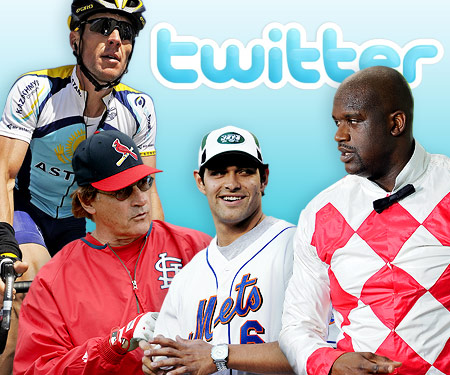 When Twitter first broke into the scene in the latter part of the last decade, it seemed like a pretty trivial way to let the world know what you were up to. Not a lot of people understood what kind of effect it would have on the world, but in less than a few years since it was born, Twitter has exploded into something far bigger than anyone had ever expected.
When Twitter first broke into the scene in the latter part of the last decade, it seemed like a pretty trivial way to let the world know what you were up to. Not a lot of people understood what kind of effect it would have on the world, but in less than a few years since it was born, Twitter has exploded into something far bigger than anyone had ever expected.
These days, Twitter has become such an integral part of everyday life, so much so that it’s even become the subject of numerous sociological studies, including one that was recently done at Carnegie Mellon University that should put smiles on the faces of sports bettors.
According to a new study tackling the field of Twitter modeling, researchers have discovered that sports bettors can predict the results of sporting events better with the social media tool. The rub? This kind of modeling can predict the outcome of sporting events better than traditional methods, or what we consider as traditional in that sense of the word.
So how did this study end up with the these proclamations? According to the Washington Post, it took a lot of data sampling covering millions of football-related tweets during the 2010, 2011 and 2012 seasons. Using all these samples, researchers analyzed and cataloged the “sentiment by teams and then proceeded to run the data through a series of statistical models”.
The result was surprising, to say the least.
Upon collection, gathering, and interpretation of the data, the study determined that combining conventional methods with a Twitter-centric model, researchers managed to predict the outcome games with an accuracy of 65.9 percent. Compare that to using conventional predictive methods that predicts winning outcomes at “only” a 58-percent clip and you can surmise that there’s a world of difference between those numbers. It’s a difference that can ultimately be used by sports bettors to accurately predict scores at a higher percentage. And in their world, a higher percentage means a higher chance of cashing in on winning bets.
“We find that simple features of Twitter data can match or exceed the performance of the game statistical features more traditionally used for these tasks,” the researchers conclude.
“It is hoped that our approach and dataset may be useful for those who want to use social media to study markets, in sports betting and beyond.”
Nobody thought that Twitter could be used in these means during its infancy. But it goes to show that the age-old tenet still applies during modern times.
“It only takes one idea to change the world”.
And in the case of sports bettors, this new study just might be the key to a higher profit margin.
